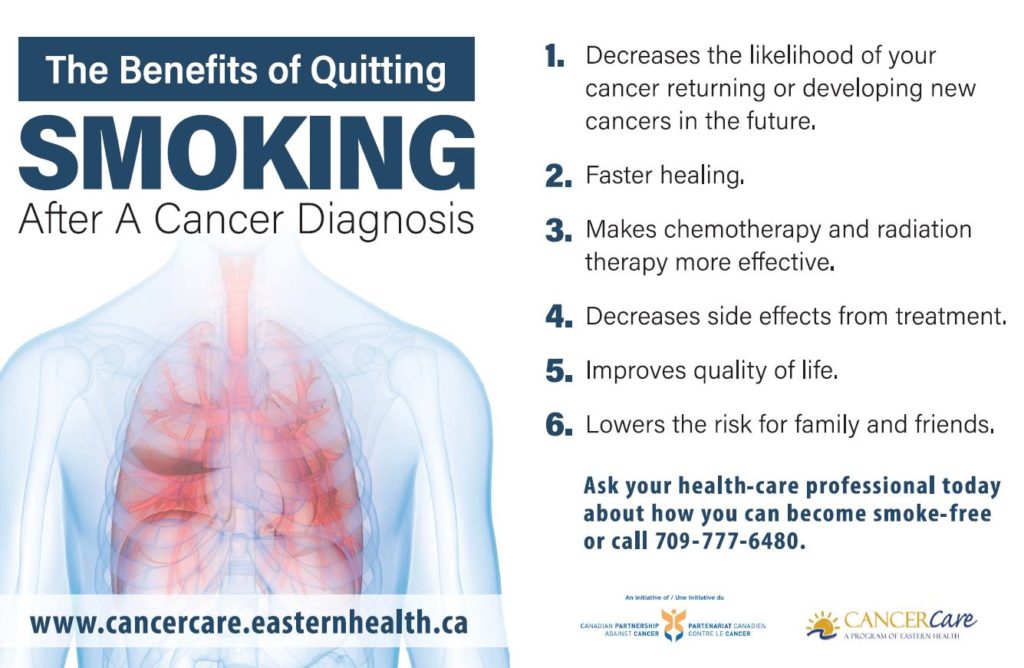Smoking Cessation Program
The purpose of the smoking cessation program is to help people quit smoking commercial tobacco smoked for recreational purposes.
Quitting smoking is one of the best things you can do to help your cancer treatment.
Whether you are scheduled to have surgery, radiation therapy or chemotherapy, quitting smoking will help you.

Surgery
- Quitting smoking or reducing the number of cigarettes you smoke can make surgery safer, and help you recover from surgery more quickly.
- People who don’t smoke:
- are less likely to have complications during or after their surgery,
- are less likely to develop infections, and
- may get better faster and go home sooner.
Chemotherapy
- Chemotherapy drugs work better in people who don’t smoke.
- Smoke has chemicals in it that reduce the blood level of some chemotherapy drugs, making them less effective.
Radiation Therapy
- Radiation therapy works better if the level of oxygen in your body is normal. When you smoke, the level of oxygen in the blood drops, making it harder for radiation to do its job.
- Continued smoking may increase the side effects associated with radiation therapy.
How can we help?
Eastern Health’s Cancer Care Program is pleased to offer patients access to smoking cessation services. The smoking cessation clinic is accessed through referral by your oncologist, nurse, radiation therapist or other health-care professionals, or by self-referral.
The Smoking Cessation Program runs one morning per week, and provides patients with a combination of behavioural therapy and prescription and non-prescription medications. During your smoking cessation clinic appointment, a health-care professional will discuss the importance of being smoke-free, examine your case and develop a customized plan to help you become smoke-free. Our team consists of a:
- nurse practitioner,
- pharmacist, and
- general practitioner in oncology.
The smoking cessation program in cancer care respects the use of sacred tobacco for ceremonial and social purposes by Indigenous Peoples.
Treatment options
There are many treatments available to help someone quit smoking. Nicotine Replacement Therapy (NRT) can help a person quit smoking. NRTs are designed to reduce the cravings for nicotine. Examples include:
- Patches
- Gum
- Lozenges
- Inhalers
Prescribed medications can also be used to help someone quit smoking. These medications are prescribed by a health-care professional and can help control withdrawal symptoms making smoking less appealing. Examples include:
- Champix® (Varenicline)
- Zyban® (Bupropion)
Ask your health-care professional today about how you can become smoke-free, or call 709-777-6480.
